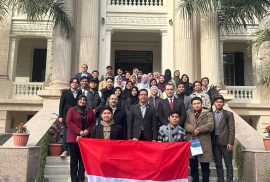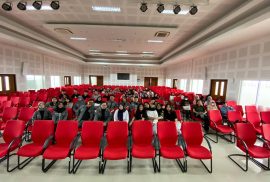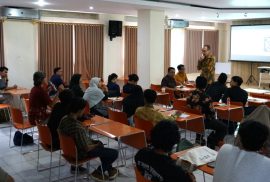The Middle Eastern Culture & Religion Issues (MECRI) journal of the UGM Master of Middle Eastern Cultural Studies Program has officially signed a cooperation agreement with Ittihad Mudarrisi Al-Lughah Al-Arabiyah (IMLA) Indonesia on Friday, March 8, 2024 at Discovery Hotel, Ancol Jakarta. The signing was attended by Prof. Dr. Sangidu, M.Hum. as the ex-officio Chairperson of the Master of Middle Eastern Cultural Studies Program and Dr. Imam Wicaksono, Lc., M.A. as the Managing Editor of the MECRI Journal, while from the IMLA side it was attended by the Chairman, Prof. Dr. Uril Bahruddin, M.A.
MECRI Journal and IMLA Indonesia establish editorial board cooperation in the form of involving IMLA Indonesia as a bestari partner and quality assurance of national and international journal publications online and Open Journal System (OJS). In this historic moment, the Professor of UIN Malik Ibrahim Malang said that the association of lecturers with Arabic Language and Literature journals needs to synergize in improving the quality of education in Indonesia. The entire academic community is obliged to make research-based innovations in the study of Arabic language and literature. With this collaboration, it is hoped that the UGM MECRI Journal can become one of the platforms for the development of scientific publications in Indonesia so that academics and researchers will find it easier to publish scientific papers in the future.






